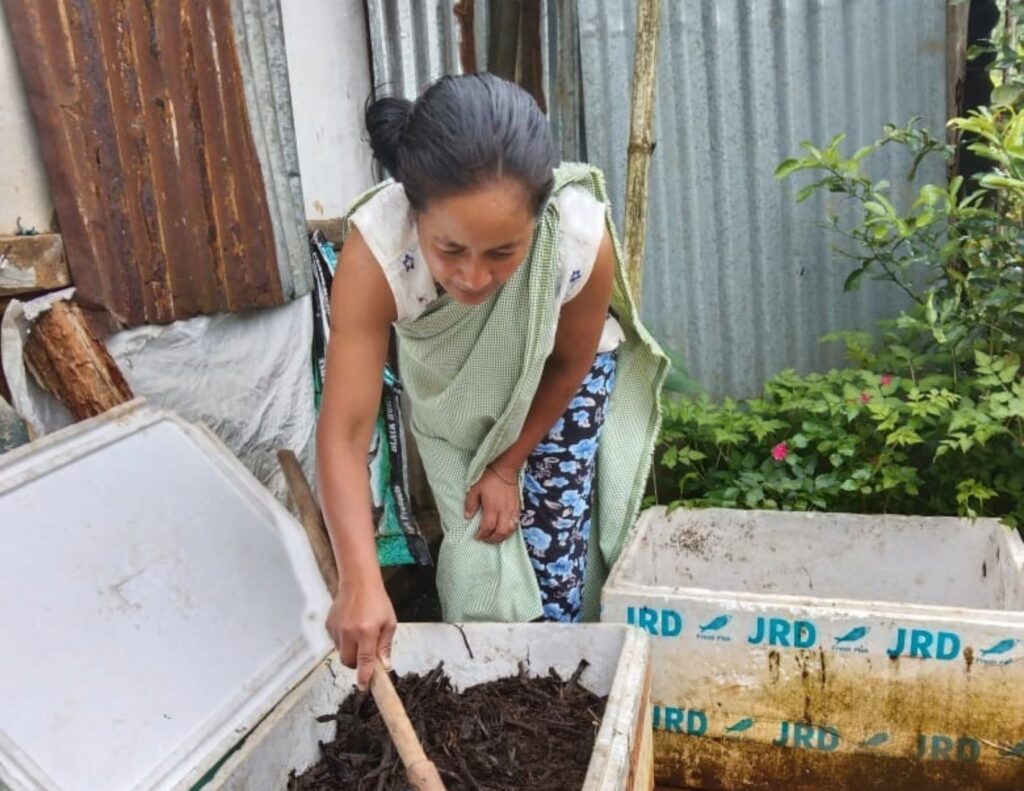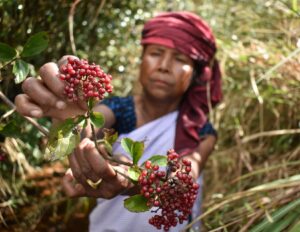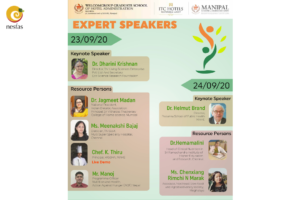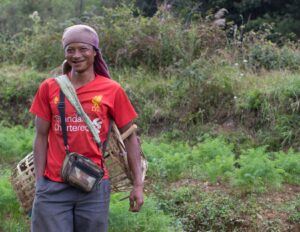Following through from the technical training on the best practices of Natural Integrated Farming facilitated by Bah Helpme Laloo for the Agroecology Learning Circle (ALC) members in the months April and May earlier this year, NESFAS reached out to Kong Raphida Nongrum who is a Community Facilitator from Itsohpair, Ri-Bhoi, on her thoughts about the Vermicomposting training sessions and her implementation of the same.

In the training, she learnt to use rice hay and cow dung along with earthworms to create a fertile vermicompost over the period of 10 days. This was an important step along the way since most farmers these days turn to chemical fertilizers which are not only harmful to the soil in the long run but also diminish the quality of the crops grown in the same. Kong Raphida is one of the first ALC members that has been able to implement this technique on her own using the knowledge from the training session. She believed that after using this method of fertilization, she was able to create a fertile medium for the growth of her crops and she hopes that this inspires other farmers to follow lead.
Kong Raphida is an active ALC member of the NESFAS’ ongoing project “Empowering Indigenous Communities through Agroecology Learning Circles (ALCs) for resilient, integrated and innovative natural resource management”, which is supported by MBMA and funded by the World Bank.



